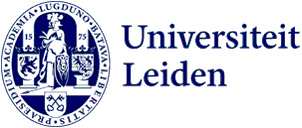Lecture
CANCELLED: Gloves are off: When and why allies use cyber weapons in hybrid scenarios?
- Mikkel Storm Jensen (Royal Danish Defence College)
- Date
- Wednesday 5 November 2025
- Time
- Address
-
Lipsius
Cleveringaplaats 1
2311 BD Leiden - Room
- 0.05
This event has unfortunately been cancelled
This extracurricular event is a lecture on cyber power and cyber operations, followed by the wargame “Gloves are off”, in which students will be participating in a decision-making simulation about cyber operations in uncertain geopolitical conditions.
Lecture abstract
The lecture sets the scene for the subsequent wargame by discussing cyber power, cyber operations, and international conflict to identify key gaps in what we know about cyber operations. Integration of the cyber domain in coalition operations becomes increasingly relevant with the emerging concept of Multi-Domain Operations (MDO) in alliances, e.g. NATO. However, International Relations (IR) literature on cyber conflict provides little insight into allies’ motivations behind decisions regarding offensive cyber operations (OCO). Presently academia primarily explore how states might individually utilize destructive OCO (cyberspace attacks) for strategic purposes. The need for insights into these questions is exacerbated by the increasing role of OCO in what NATO terms “hybrid tactics” in Gray Zone-conflicts. Both for small allies that as minor powers depend on the alliance’s dominating power(s) for security guarantees, and for the alliance’s hegemonic member(s) who may call upon minor allies to demonstrate alliance cohesion in the shape of OCO as part of the ongoing great power competition.
The decision making surrounding the deployment of or response to OCO is notoriously hard to study. Not only are access to the strategic decision makers often difficult, but close ties between cyber operations and the intelligence community makes political motivations even more difficult to untangle. This is an attempt to use novel war gaming approaches to data collection in IR scholarship and provide insights into the above question.
About the wargame "Gloves are off"
The wargame focuses on OCO in the context of strategic competition below the level of armed conflict influence allies’ dilemmas regarding entrapment and abandonment in alliance dynamics, taking as its theoretical foundation realist alliance politics theory. In particular, the wargame puts its players in the position of strategic decision makers of a state which depends on a military alliance for its national security who must weigh the possibilities to gain prestige vis-à-vis the alliance’s hegemonic power to maximize security guarantees by accommodating requests for support in the shape of OCO, against the risks from involving itself in the hybrid activities accompanying great power competition.
The war game has been played by more than 200 participants from professional military and policy-making backgrounds – mainly European, but also with participants from other parts of the world in the period between 2023-2025. Eventually, the game is intended to be played with either former decision makers or officers studying at military academies from states that are US allies. The war game is a two-step scenario game that involves data from discussions on how to respond as a small allied state, first, to a gray zone attack when big power requests support, and, second, to an escalation where support from the alliance’s hegemonic power is uncertain.

About the speaker
Mikkel Storm Jensen is a major in the Danish army, teaching at the Royal Danish Defence College’s Institute for Strategy and War Studies. Jensen finished his Ph.D. in 2023 on the role of offensive cyberspace operations capabilities (“cyber weapons”) on inter-alliance dynamics, particularly within NATO. Jensen’s research falls in two spheres: From a defensive perspective he investigates the state’s role in developing and implementing resilience strategies to counter hybrid threats emanating from the cyber domain. From the offensive perspective he looks at the potential for offensive cyberspace operations particularly from small, alliance dependent states’ perspective under conditions of strategic competition below the threshold of armed conflict.
